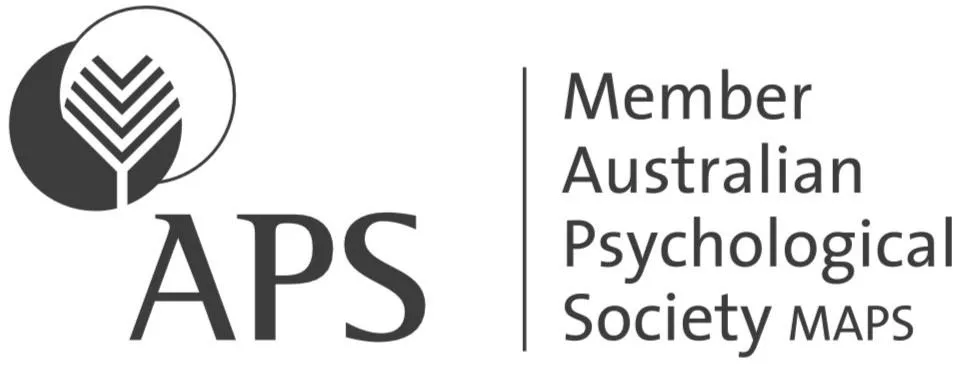FAQ's
Questions about our online
Counselling or Coaching Services?
Medicare rebate or private medical insurance claim for psychological services?
Most clients prefer to book directly with with our counsellors. No referral is required to access this counselling service.
During the first session, you can discuss the benefits of seeking a Mental Health Care Plan from your GP should you wish to pursue this path moving forward and you are booking with a registered psychologist. If you require a Mental Health Care Plan (MHCP) you will need to make a long appointment with your GP and they will make an assessment about whether you are eligible.
All of our registered psychologists are registered with Medicare and you will need a referral from a GP if you wish to claim Medicare rebates. Under the Better Access program you can receive a partial rebate for up to 10 individual sessions in a calendar year.
All our psychologists are registered with private health insurance providers in Australia. If you have private health insurance, you may be eligible to claim rebates for psychological sessions. The level of cover and any applicable waiting periods vary between providers and depends on your extras cover policy.
To find out if you are eligible and/or how much funding you are entitled to claim for psychological sessions, please contact your private health insurance.
Where applicable, some of our psychologists also see clients who are self-managed or plan-managed through NDIS at the current rate for NDIS.
Cancellation or missed sessions policy
Given the nature of our support services, last minute cancellations are costly, and it means that other clients may miss out on receiving the required support. For cancellations within 48 hours of the scheduled appointment there is a $65 part fee payment. For less than 24 hours cancellation notice or a non-show, the full session fee will need to be charged. These fees are refunded however if the session can be filled at the last minute.
How are your counselling and coaching sessions held?
We know our clients are time poor. For your convenience, all our counselling or coaching sessions are now available online via Zoom.
You can book your appointment online via this website.
Zoom allows us to connect with you via video and audio. It just requires you to click on a link to join. You can sign up to Zoom to create a FREE account and download the Zoom Client for Meetings. Zoom does require internet connections.
After you book you will be sent a reminder about the booking and emailed a link to connect at the booked time. You are also likely to be sent a client information form to complete prior to your initial consultation to enable our Counsellors and Coaches to be better prepared for your first meeting.
If you are unable to make any of the dates available, please email us to see if we can accommodate an alternate time for you: [email protected]
If you live in Brisbane or the Gold Coast, Queensland, we are available for face to face consultations. Please email us at [email protected] if you would like to arrange an in person appointment.

Catch up on our latest blogs

Yikes - another leak
Why am I leaking?
Urinary incontinence — the loss of bladder control — is a common but often inconvenient and embarrassing problem which can rob us of our self esteem and confidence. The severity ranges from occasionally leaking urine when you cough or sneeze to having an urge to urinate that's so sudden and strong you don't get to a toilet in time.
Though it occurs more often as people get older, urinary incontinence isn't an inevitable consequence of aging. If urinary incontinence affects your daily activities, don't hesitate to see your doctor. For most people, simple lifestyle and dietary changes or medical care can treat symptoms of urinary incontinence.
Symptoms
Many people experience occasional, minor leaks of urine. Others may lose small to moderate amounts of urine more frequently.
Types of urinary incontinence include:
· Stress incontinence. Urine leaks when you exert pressure on your bladder by coughing, sneezing, laughing, exercising or lifting something heavy.
· Urge incontinence. You have a sudden, intense urge to urinate followed by an involuntary loss of urine. You may need to urinate often, including throughout the night. Urge incontinence may be caused by a minor condition, such as infection, or a more severe condition such as a neurological disorder or diabetes.
· Overflow incontinence. You experience frequent or constant dribbling of urine due to a bladder that doesn't empty completely.
· Functional incontinence. A physical or mental impairment keeps you from making it to the toilet in time. For example, if you have severe arthritis, you may not be able to unbutton your pants quickly enough.
· Mixed incontinence. You experience more than one type of urinary incontinence — most often this refers to a combination of stress incontinence and urge incontinence.
When to see a doctor
You may feel uncomfortable discussing incontinence with your doctor. However, if incontinence is frequent or is affecting your quality of life, it's important to seek medical advice because urinary incontinence may:
· Cause you to restrict your activities and limit your social interactions
· Negatively impact your quality of life, self esteem and confidence
· Increase the risk of falls in older adults as they rush to the toilet
· Indicate a more serious underlying condition.
Join the FREE Monthly Newsletter
Sign up to the email and you also go into the draw for ticket to a workshop of choice.




We are committed to protecting your personal information and respecting your privacy. This website uses cookies to analyze website traffic and optimise your website experience. By accepting our use of cookies, your data will be aggregated with all other user data.
DISCLAIMER: The material contained on this website is for general educational and information purposes only and is not a substitute for professional legal, financial, medical or psychological advice or care. While every care has been taken in the information provided, no legal responsibility or liability is accepted, warranted or implied by the authors or Family Counselling Support Network and any liability is hereby expressly disclaimed. For specific advice please contact us at [email protected]. All information contained on the website remains the intellectual property of Family Counselling Support Network and is for your personal educational use only. The information must not be reproduced or distributed without the express permission of Family Counselling Support Network.
Family Counselling Support Network acknowledges and respects the First Nations Custodians of the land where our offices stand, and where we work to help Australians. We pay respects to their Elders, past present and emerging, lore, customs and creation spirits. We recognise that these lands have always been places of ceremony, teaching, research and learning, and we acknowledge the important role Aboriginal and Torres Strait Islander peoples play in our community.
We are committed to providing an inclusive and accessible environment where people and communities of all identities and backgrounds are accepted, safe and celebrated.
Privacy Policy | Terms and Conditions

